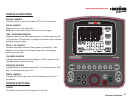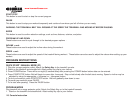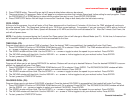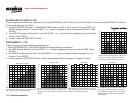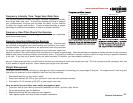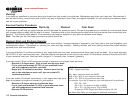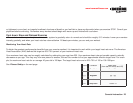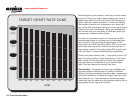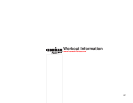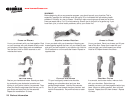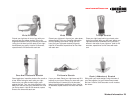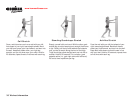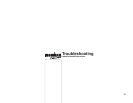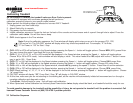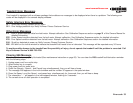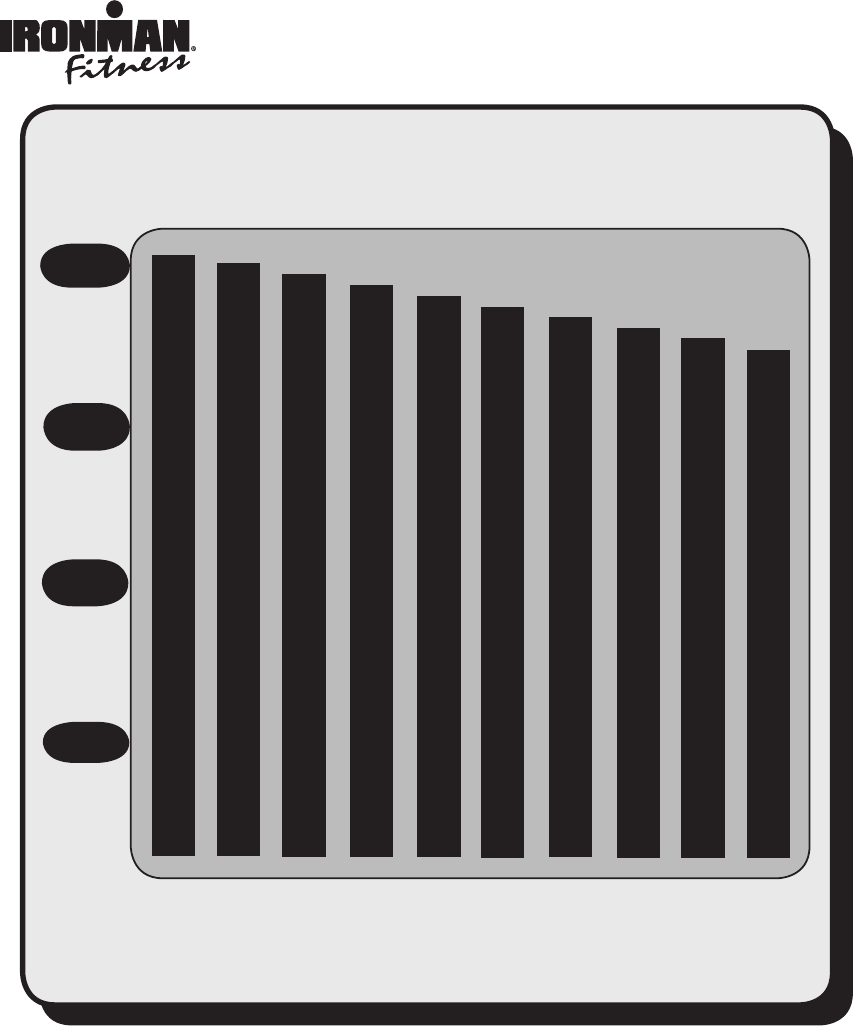
www.ironmanfitness.com
26 Console Instruction
100%
85%
75%
60%
Serious
athletic
training range
Cardiovascular
conditioning
range
Fat burning
range
20 25 30 35 40 45 50 55 60 65
AGE
200
195
190
185
180
175
170
165
160
155
170
166
162
157
153
149
145
140
136
132
150
146
143
139
135
131
128
124
120
116
120
117
114
111
108
105
102
99
96
93
TARGET HEART RATE ZONE
Before beginning your workout, check your normal resting
heart rate. Place your fingers lightly against your neck, or
against your wrist over the main artery. After finding your
pulse, count the number of beats in 10 seconds. Multiply
the number of beats by six to determine your pulse rate
per minute. We recommend taking your heart rate at these
times; at rest, after warming up, during your workout and
two minutes into your cool down, to accurately track your
progress as it relates to better fitness.
During your first several months of exercising, the AHA
recommends aiming for the lower part of the target heart
rate zone-60%, then gradually progressing up to 75%.
According to the AHA, exercising above 75% of your maxi-
mum heart rate may be too strenuous unless you are in
top physical condition. Exercising below 60% of your maxi-
mum will result in minimal cardiovascular conditioning.
Check your pulse recovery rate – If your pulse is over 100
bpm five minutes after you stop exercising, or if it’s higher
than normal the morning after exercising, your exertion
may have been too strenuous for your current fitness
level. Rest and reduce the intensity next time.
Fitness Safety The target heart rate chart indicates aver-
age rate zones for different ages. A variety of different
factors (including medication, emotional state, temperature
and other conditions) can affect the target heart rate zone
that is best for you. Your physician or health care profes-
sional can help you determine the exercise intensity that is
appropriate for your age and condition.




